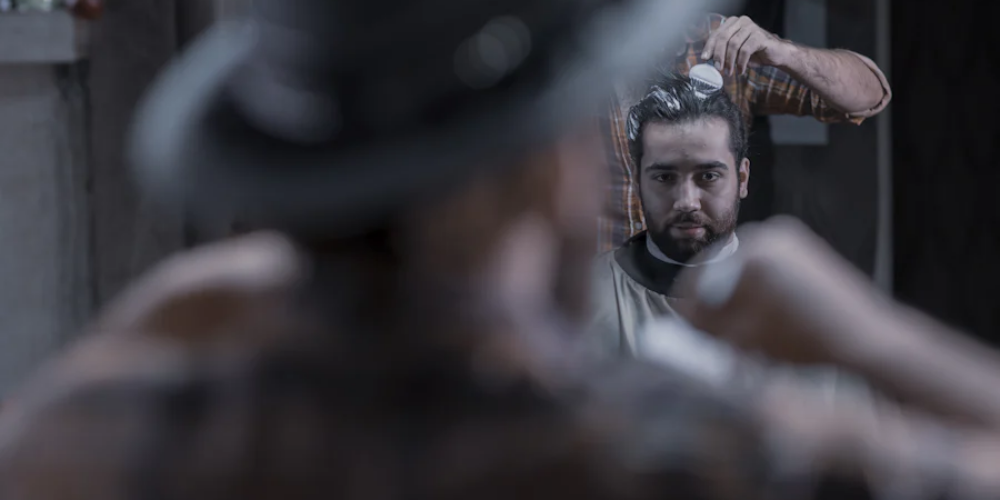Your barber will always recommend a haircut

“Don’t ask the barber whether you need a haircut” is folksy Warren Buffet at his best. This little bit of wise advice has more layers than a wedding cake, and it’s really about incentives and the distortions they bring into our lives.
The barber’s livelihood depends on giving you haircuts, whether you need them or not. There’s a vested interest in snipping away, and you have to be very aware of that. I was reminded of the tendency when I visited a car wash this week, and got told very gently at the end how my car needed new floor mats, water spots removed, etc. I managed to escape with just the regular cleaning, but only just.
Similar escapes will also be needed from other characters we will meet in our lives, some of them rather sophisticated.
If you walk into your doctor’s practice with symptoms, you’re almost guaranteed to walk out with tests and prescriptions. That’s how doctors make their money, after all: they have to see patients, they have to prescribe meds, they have to do treatments. So even the generally healthy will get treated.
If you go to see the average therapist about any anxiety you’ve been feeling, you are very likely going to walk out with a condition you never knew existed. I’m pretty sure introverted, socially reclusive me would come out with several conditions! That might keep me on that couch for many repeat visits, and probably some long-lasting chemical interventions.
Let’s keep going. What about management consultants? I used to be one myself, so perhaps I can give you some tongue-in-cheek advice. These are the ninjas of the business world, super-skilled in every possible revenue-boosting, efficiency-enhancing methodology. If you ask them to walk in to diagnose your company, they will give you a thumbs-up and a pat on the back, and say well done, keep going as you are—right?
More likely you will have your business’s existential threats and deficiencies pointed out, and sold some comprehensive transformation projects replete with the latest buzzwords and playbooks. You thought you were doing just fine, CEO? No, no, you face a potentially fatal downturn if you don’t move quickly and implement that latest enterprise software, a comprehensive change initiative, a radical organizational reboot or, these days, an AI turbo-charging programme.
What about asking a cabinet minister what the nation needs from their sector? That’s easy—a multibillion-dollar transformation project involving new facilities, digitization, connectivity, social elevation, and a whole lot more. What about just doing the simple stuff first? No, no, not ambitious enough. We need to transform our country by accelerating and leapfrogging. Let’s get started with some visioning and big-ticket tendering, no time to lose!
We all have to beware of the incentives of others. A whole range of people around us—professionals, advisors, vendors, suppliers, politicians, even friends—have recommendations for us. The question we have to ask is: are these solutions right for me, or right for them?
I’m probably about to lose all my own friends right now, so let me pause. While it’s important to be discerning, let’s not forget that many people are genuinely trying to help. Many doctors dedicate their lives to healing, most therapists strive to mend troubled minds, some consultants aim to improve businesses, and even politicians have good intentions. (OK, wait, the jury is still out on that last group…)
I’m not asking you to distrust everyone who offers a service, but to exercise healthy scepticism. Study the incentives at play, dig deeper, and seek alternative perspectives.
Remember, we’re all susceptible to bias, especially bias that suits and rewards us. Doctors may overprescribe, therapists may overanalyze, consultants may overcomplicate, and governments may overspend. It’s human nature, powered by incentives.
We need experts, but we also need to develop and trust our own judgment. We need guidance, but we also need to find our own paths. And sometimes, we just need a good old-fashioned gut-check. It’s not about being cynical, but about being informed, empowered, and ultimately, responsible for our own choices.
Warren Buffett’s wisdom isn’t just about haircuts; it’s about questioning the status quo, thinking critically, and making decisions that truly serve us. It’s about finding the balance between trust and scepticism, expertise and intuition, guidance and independence. It’s about acknowledging that even the most well-intentioned individuals can have in-built biases, and it’s our responsibility to navigate those complexities with wisdom and discernment.
So ask questions, explore recommendations, and make informed choices. Because at the end of the day, the only person who truly knows what you need is you. But while you’re at it, remember to give folks the benefit of the doubt now and then. The world could use a little more trust and a lot less suspicion. I have known plenty of upright professionals in my time who would never upsell or impose unnecessary solutions. They deserve our trust and commendation.
The real answer to Buffet’s barbershop conundrum is this: your best decisions will come from a place of informed, independent judgment, not from the barber’s chair.
(Sunday Nation, 11 August 2024)

Buy Sunny Bindra's new book
The X in CX
here »
Popular Posts
- How things fall apartFebruary 8, 2026
- Why the third generation might ruin everythingFebruary 15, 2026
- You don’t need people skillsFebruary 22, 2026
- Our connection with nature is elementalMarch 1, 2026
- Pretty isn’t the productFebruary 1, 2026











